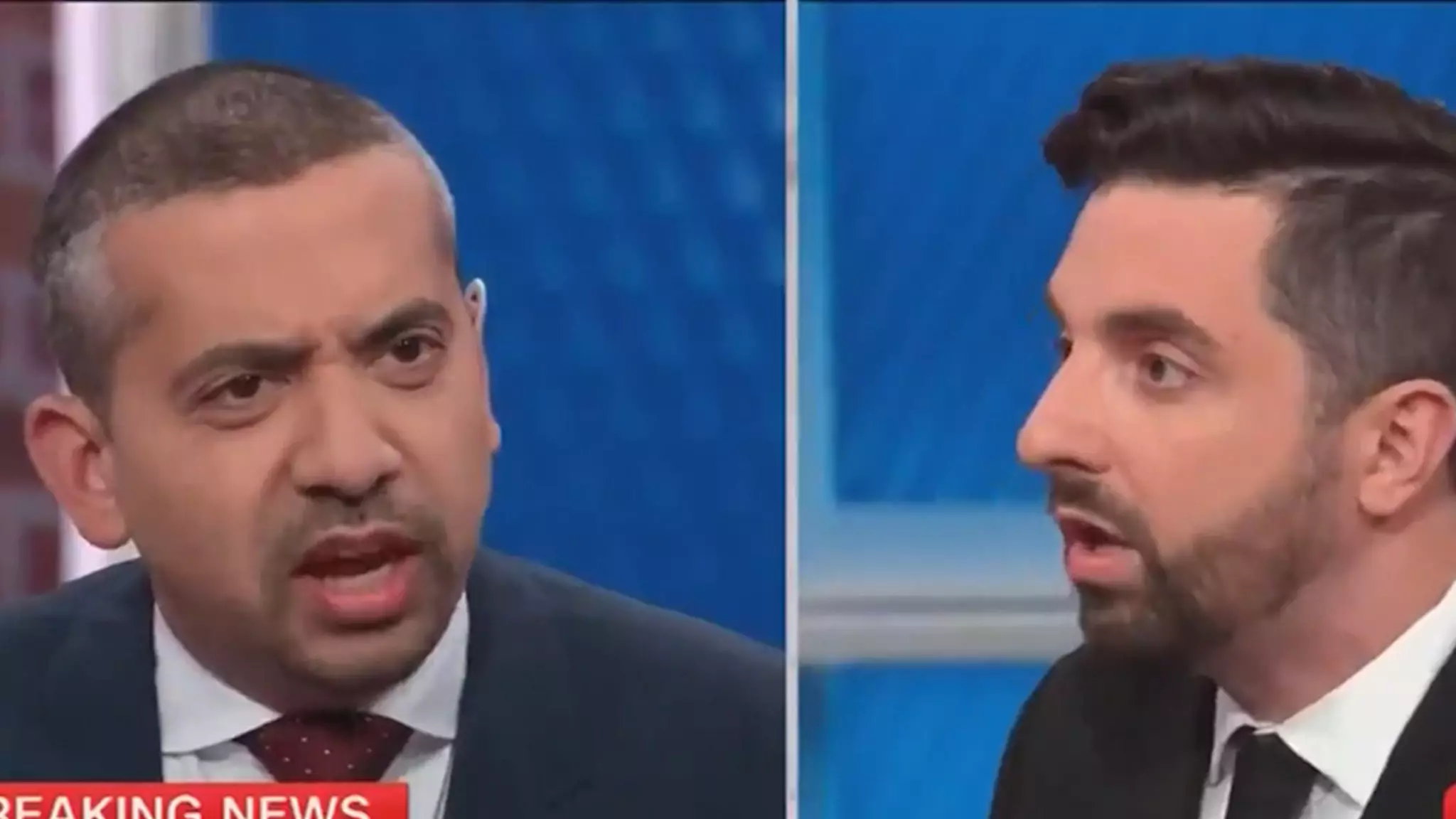The recent political discourse has brought to light the complexities and risks involved in public commentary, particularly when humor intermingles with sensitive topics. Ryan Girdusky, a political commentator, found himself at the center of a firestorm due to a controversial joke he made during a televised debate on CNN’s “NewsNight With Abby Phillip.” This incident not only amplified discussions about what constitutes acceptable commentary but also raised questions about media accountability in a politically charged environment.
Girdusky’s contentious remarks were made in response to a discussion that explored the intersection of political opinions and ethnic tensions, particularly in the context of the Israeli-Palestinian conflict. While engaged in a heated debate with fellow guest Mehdi Hasan, Girdusky’s comment about a “beeper,” which alluded to a historical incident involving terrorism, was interpreted as a direct incitement against Hasan. This was exacerbated by the charged atmosphere of the debate, as both sides grappled with deeply rooted emotions surrounding the topic of racism and bigotry in political discourse.
CNN’s swift reaction emphasized its commitment to creating a non-discriminatory environment. By banishing Girdusky from the network in response to his remarks, CNN aimed to reaffirm its values and signal to audiences that it stands against racism in all forms. This decision reflects how media organizations are being increasingly scrutinized for the content they broadcast and the implications it may have on public perception.
The Mechanics of Humor in Political Commentary
The blurred line between humor and offense appears to have been at the crux of Girdusky’s comments. He characterized the uproar as a misunderstanding, labeling his “beeper” remark as a joke rather than a serious accusation. This raises critical questions about the nature of humor in political discussions. Can humor serve as a tool for criticism, or does it sometimes stray into offensive territory?
Girdusky’s insistence that he “owns” his comments adds to the contention surrounding the discourse. His justification showcases a prevalent perspective among some commentators that provocative statements, whether humorous or not, function as necessary discourse in an era where political correctness often reigns. However, such justifications are often met with pushback, as seen in how viewers and fellow panelists received his comments. This particular incident underlines a significant challenge for public figures: humor can sometimes misfire, leading to greater societal outrage and backlash.
In the era of instant communication, Girdusky’s remarks quickly spiraled into a widespread discussion across social media platforms. This phenomenon is indicative of how public figures must navigate a landscape where their words are not just broadcast to a few viewers but also dissected and debated by audiences worldwide in real-time. Such a rapid feedback loop can exacerbate controversies, as differing opinions clash and amplify the original statement beyond the context in which it was made.
Girdusky’s remarks did not merely end with the debate; they rattled through social media, inciting discussions about racism, freedom of speech, and the responsibilities of political commentators. As public figures grapple with the fallout of their statements, the lines between personal opinion, collective outrage, and media responsibility grow increasingly complex.
Ryan Girdusky’s controversial remarks highlight the delicate balance that must be struck in political discussions, particularly in media settings. The immediate fallout and CNN’s decisive action serve as a reminder of the consequences of blurring the lines between humor and disrespect in the public eye. As political commentary becomes increasingly polarized, navigating these boundaries will require both sensitivity and accountability from commentators seeking to make their voices heard. Ultimately, the incidents surrounding Girdusky not only ignite discussions about free speech but also about the obligations we hold toward each other in an increasingly divided society.

Leave a Reply